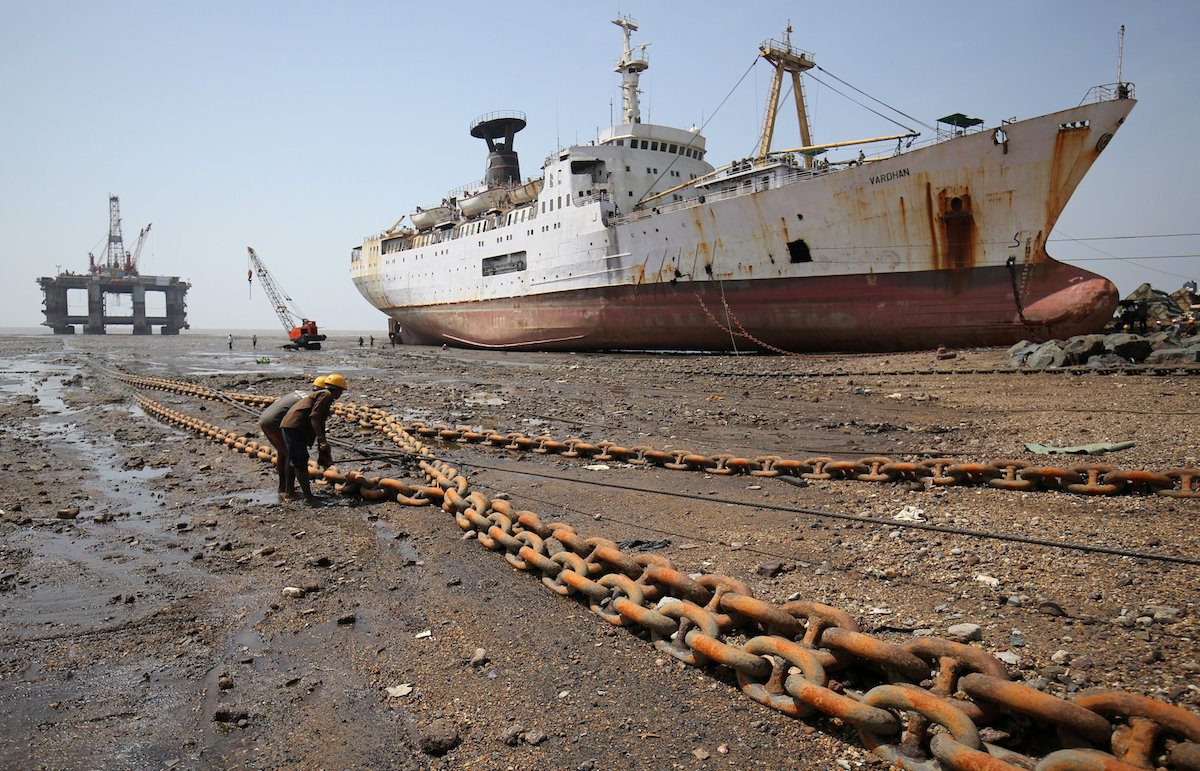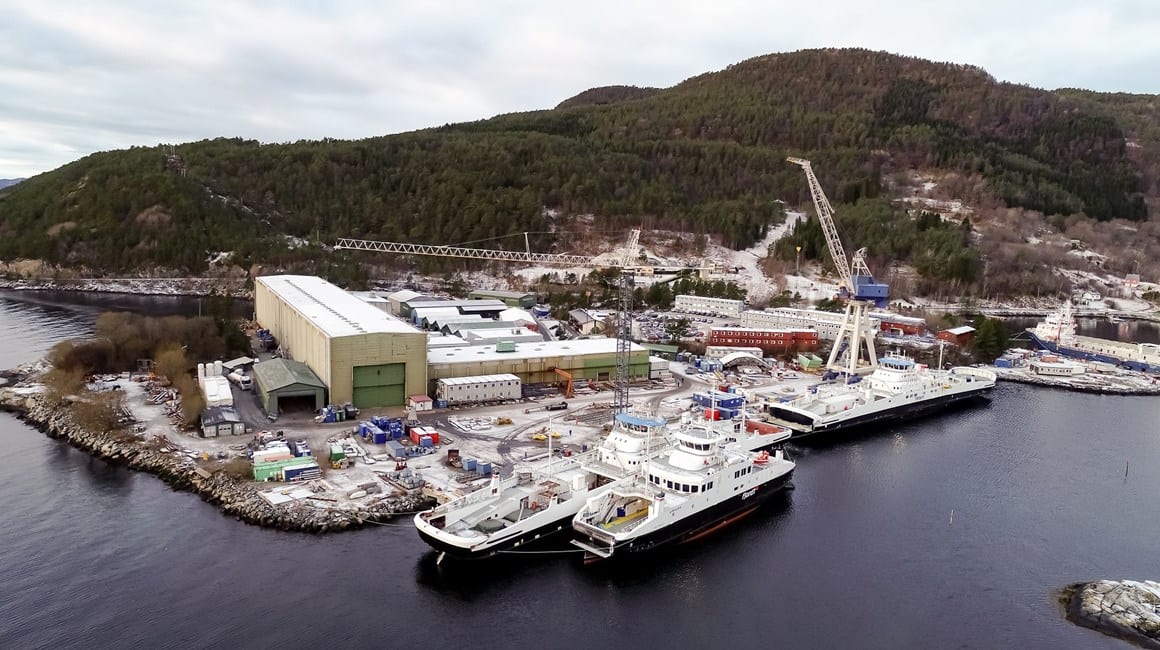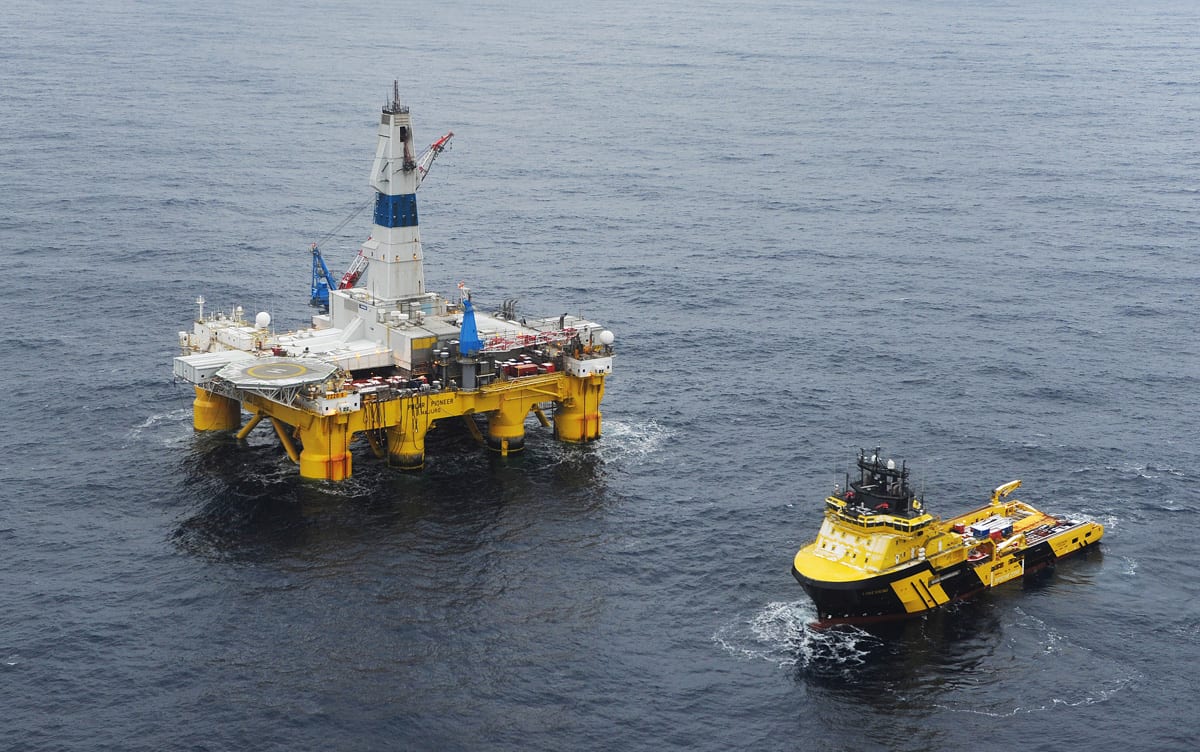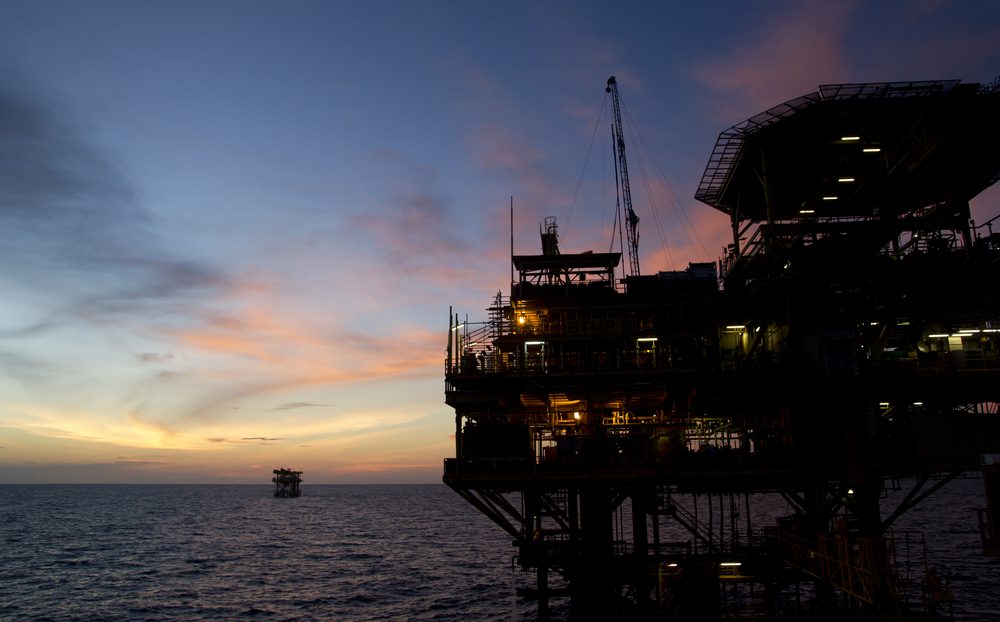Workers pull a rope tied to a decommissioned oil rig to dismantle it at the Alang shipyard in the western state of Gujarat, India, May 29, 2018. Picture taken May 29, 2018. REUTERS/Amit Dave TPX IMAGES OF THE DAY
 By Gwladys Fouche OSLO, March 13 (Reuters) – The ethics watchdog for Norway’s $1-trillion wealth fund will focus this year on shipbreaking on India’s beaches, which endangers workers and pollutes the sea and sand, and will also look into pollution caused by pharmaceutical companies.
By Gwladys Fouche OSLO, March 13 (Reuters) – The ethics watchdog for Norway’s $1-trillion wealth fund will focus this year on shipbreaking on India’s beaches, which endangers workers and pollutes the sea and sand, and will also look into pollution caused by pharmaceutical companies.
The world’s largest sovereign wealth fund, created from the proceeds of Norway’s oil industry, operates under ethical guidelines set by parliament.
The fund’s Council of Ethics checks that companies the fund invests in meet these ethical standards. It set out its latest priorities in its annual report published on Wednesday.
Johan H. Andresen, chair of the Council on Ethics, said the watchdog would turn its attention to shipbreaking in India.
More than 80 percent of aging commercial ships are broken up on the beaches of Bangladesh, Pakistan and India.
Norway’s fund already excluded four firms in 2018 because they scrap ships on beaches in Bangladesh and Pakistan.
“First you establish a practice and then you open up to new countries, because we don’t have the capacity to look everywhere at the same time,” Andresen told Reuters ahead of the publication the annual report.
“We look at whether there is a systemic, or gross, violation of human rights or damage to the environment.”
ETHICAL AMBITIONS
The fund owns shares in 9,158 companies, 1.4 percent of the world’s listed equity, so decisions to drop or reinstate companies from its investments carry considerable weight among investors.
It is forbidden by law from investing in companies that produce nuclear weapons or landmines, or are involved in human rights violations, among other criteria.
Some 71 companies are presently excluded on recommendations by the Council on Ethics, on various grounds. Another 69 companies are excluded directly by the central bank based on their dependence on thermal coal.
The fund makes recommendations, either to exclude a company from the fund or to put it on a watch list, to the board of the Norwegian central bank, which then makes the final call. The board often, but not always, follows the recommendations.
The fund gradually sells shares in any company it wishes to drop, before any announcement is made. The main aim is to remove the ethical risk.
ANTIBIOTICS POLLUTION
This year the Council on Ethics will also look for the first time into the pollution, particularly from antibiotic production, caused by pharmaceutical companies.
“In 2019, the council will contact the companies and may commission its own study of the problem,” the annual report said.
Another new focus will be economic activity that could endanger UNESCO World Heritage Sites. Andresen’s advice on this issue was clear.
“Besides don’t do it, be especially diligent on everything, from the local partners you pick, to making risk assessments, and be especially careful about the corruption risk,” he said.
The 57-year-old Norwegian, who also owns private investment vehicle Ferd, said there would probably be less than 20 recommendations made this year, stressing the number could vary depending on the progress of the various studies the council conducts.
One recommendation could involve a company breaching the human rights of its workers in the Gulf states, he said.
“We have been in dialog with one company for quite some time. A recommendation may be made before the summer, unless the company makes some major changes to its business practice,” Andresen said.
Another recommendation could involve a company involved in the building of a large infrastructure project in the Americas that contribute to breaches of human rights of indigenous peoples. He did not name the company.
(Editing by Jane Merriman)
(c) Copyright Thomson Reuters 2019.
Editorial Standards · Corrections · About gCaptain
This article contains reporting from Reuters, published under license.

 Join The Club
Join The Club











